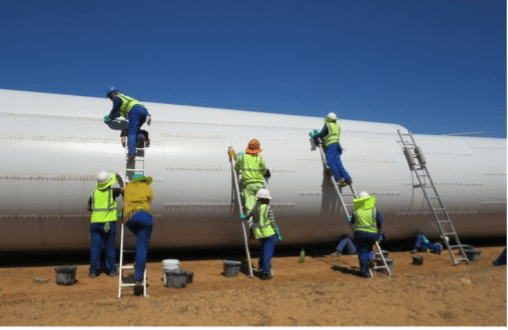In June 2024, the South African Renewable Energy Masterplan (SAREM) was approved for implementation by the executive committee of the Department of Minerals and Energy (DME), paving the way for signature by all parties. SAREM is a national renewable energy industrialization plan developed as a social compact between government, business and labor unions. It sets targets for renewable energy industrial growth and job creation, based on a minimum renewable energy rollout of 3 GW per year, increasing to 5 GW per year by 2030. South Africa’s Just Energy Transition Plan Investment plan (JETP-IP) also includes specific expectations of SAREM, identifying it as a key policy milestone and as the industrial policy lever for competitive value chains.
GreenCape, a member of the International Network of Energy Transition Think Tanks, which is hosted by Agora Energiewende, has been pivotal in SAREM’s development since 2020. As the original secretariat of SAREM, GreenCape managed the project, leading and coordinating research, overseeing consultations and formulating the first draft versions of the plan.
The final targets and implementation plans were agreed upon by representatives of organized labor, government, industry and civil society, who participated in the various structures and processes to reach consensus on SAREM.

South Africa’s national elections were held in June. The outcome of no party achieving an outright majority is a first for South Africa’s democracy. The subsequent formation of the Government of National Unity (GNU) is expected to favor a broad political endorsement of SAREM given its support from the key social partners. The expectation is that the GNU will emphasize reform and merit-based public service, increasing the likelihood of broad political endorsement for policy plans like SAREM.
SAREM’s ratification by the executive committee of the DME marks a significant milestone towards a more sustainable and inclusive economy for South Africa. One of the great insights and lessons from the SAREM development approach was the parallel implementation of the SAREM targets and activities as sufficient consensus was reached on specific mandates. This approach resulted in a policy planning tool having practical, real-economy impact through its development. For example, as consensus was reached on key proposed SAREM interventions, these interventions were typically implemented immediately. Examples of these include removing the onerous licensing requirement for energy projects larger than 1 MW, the roll-out of a demand-led skills program to support the availability of critical skills to accelerate renewables, and promotional activities to attract investment into renewable energy manufacturing value chains.

